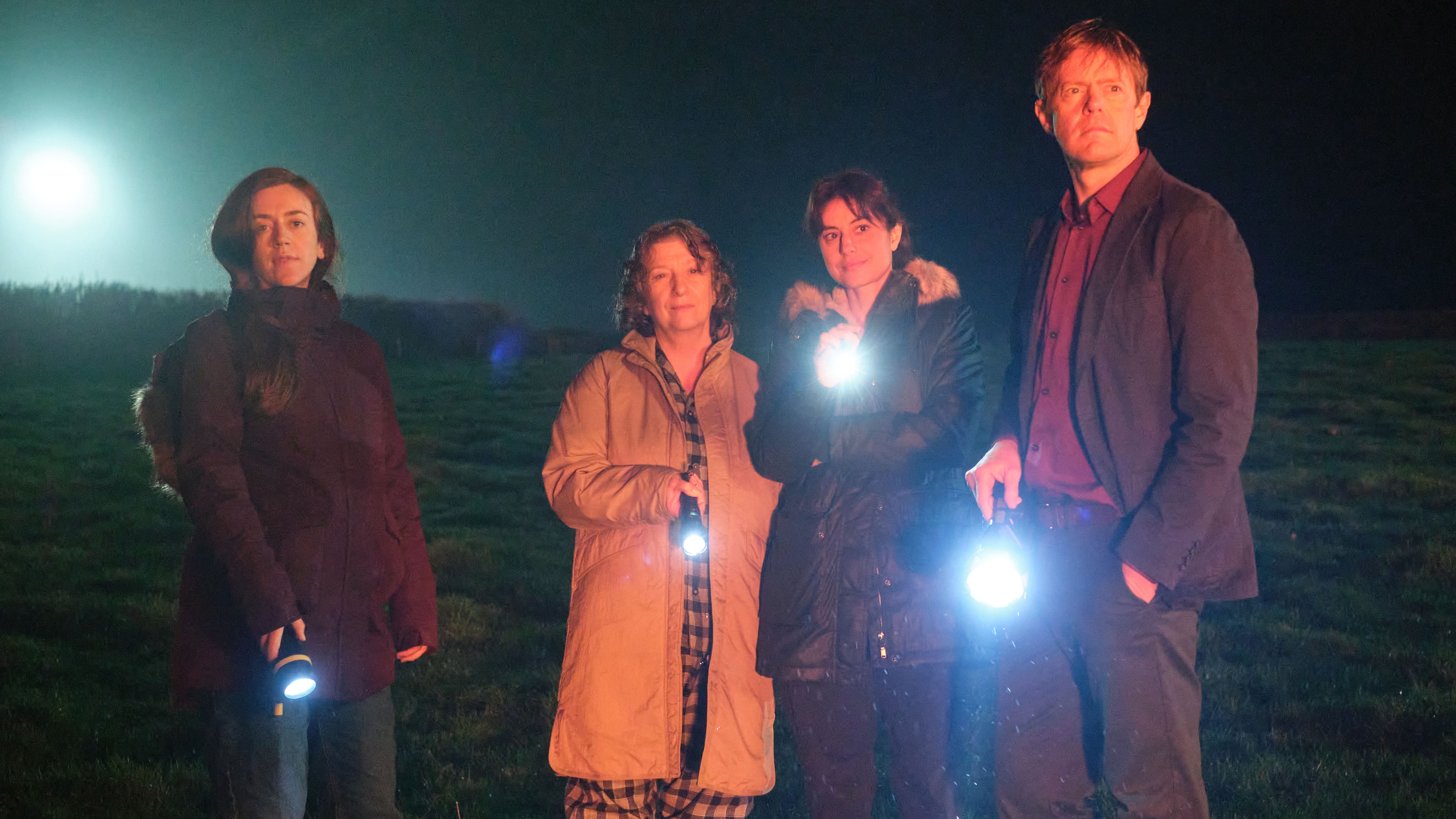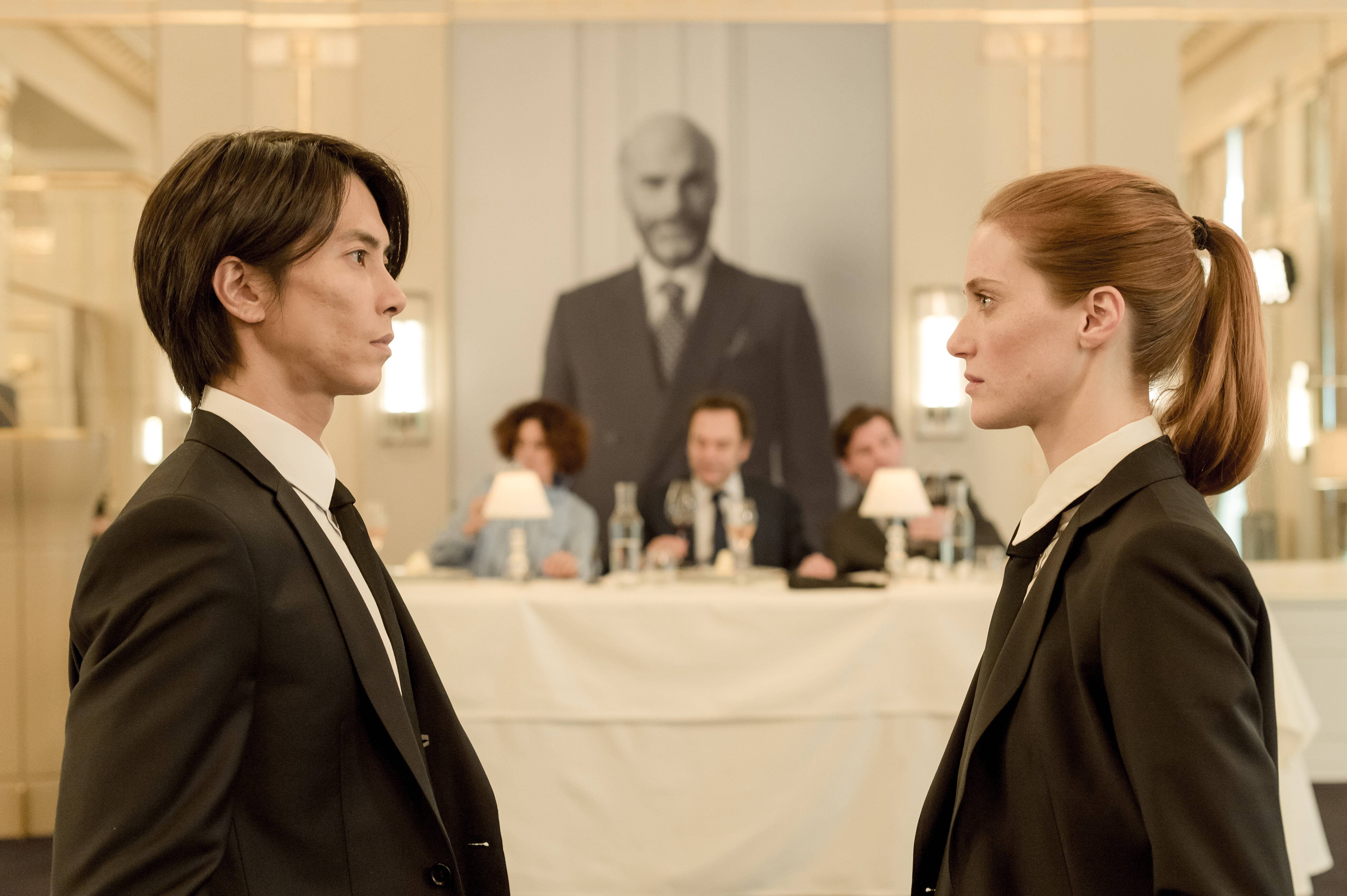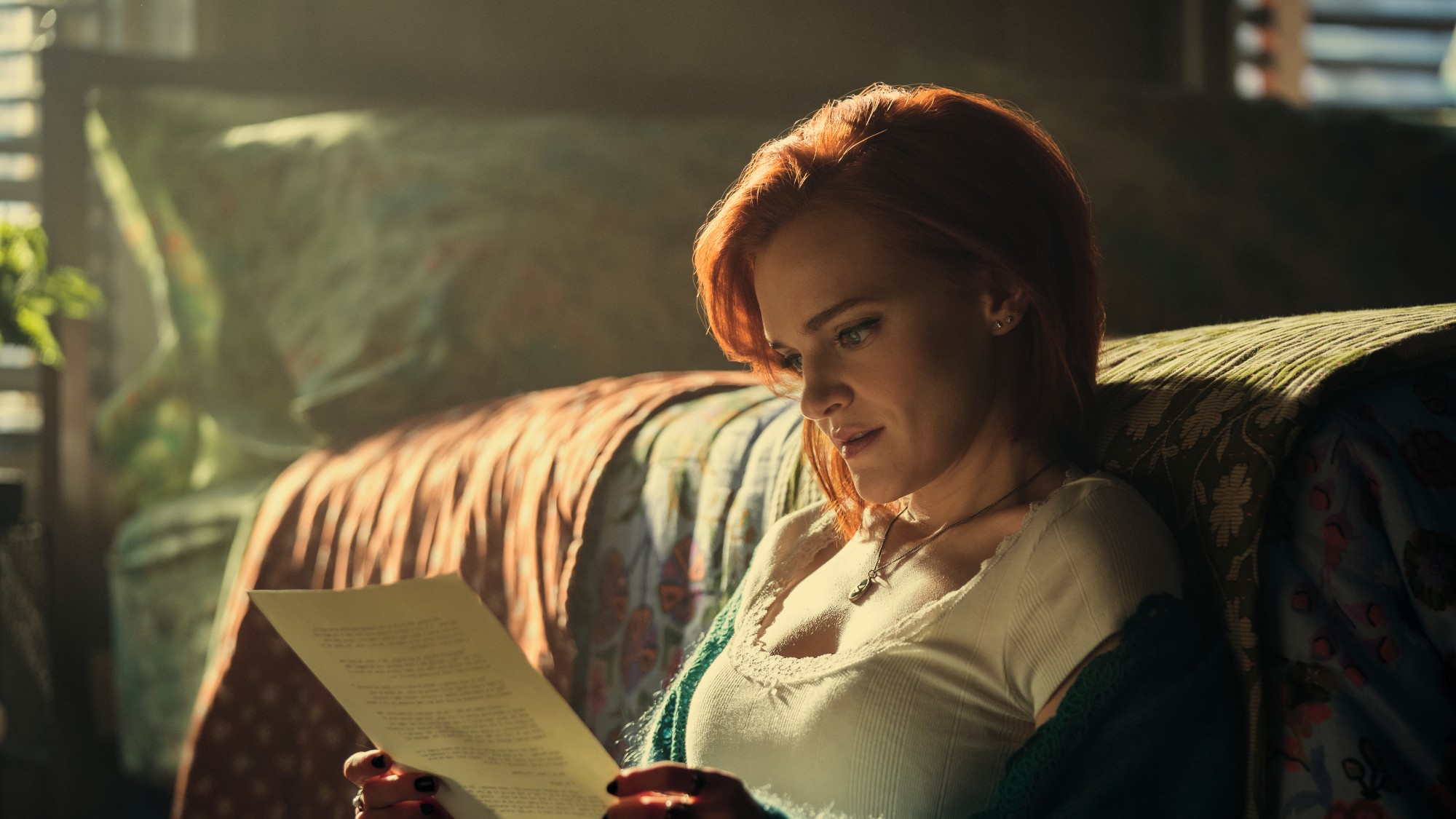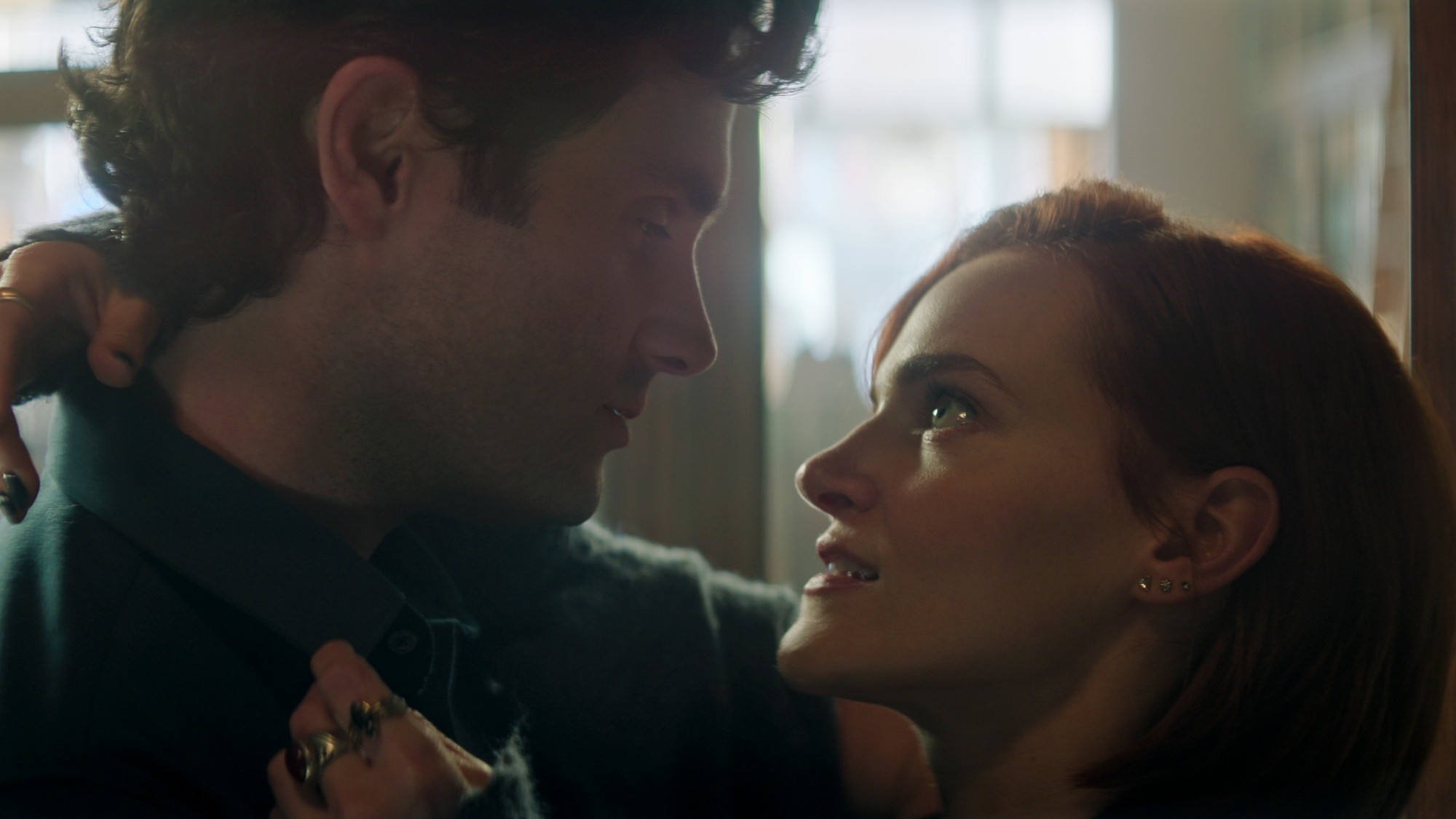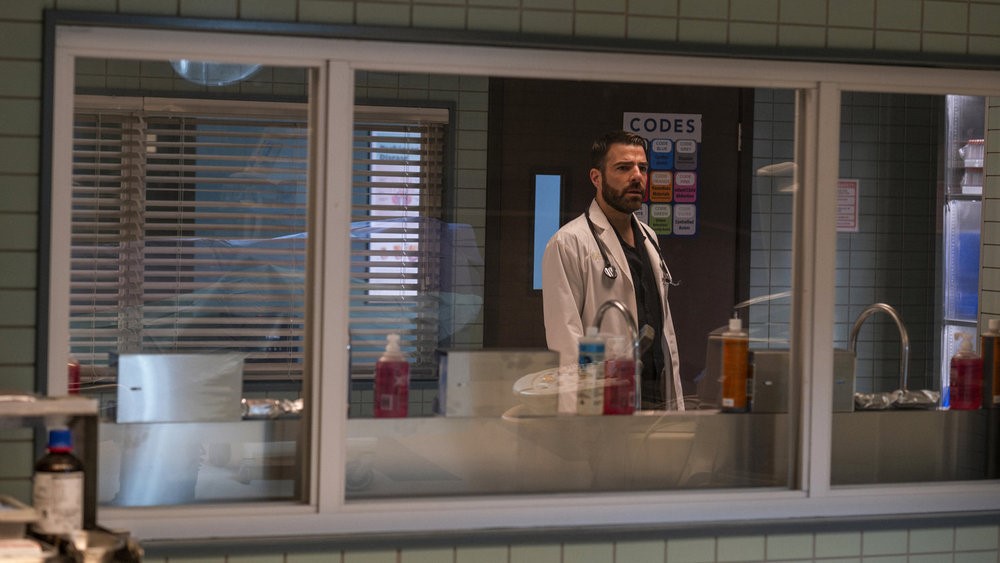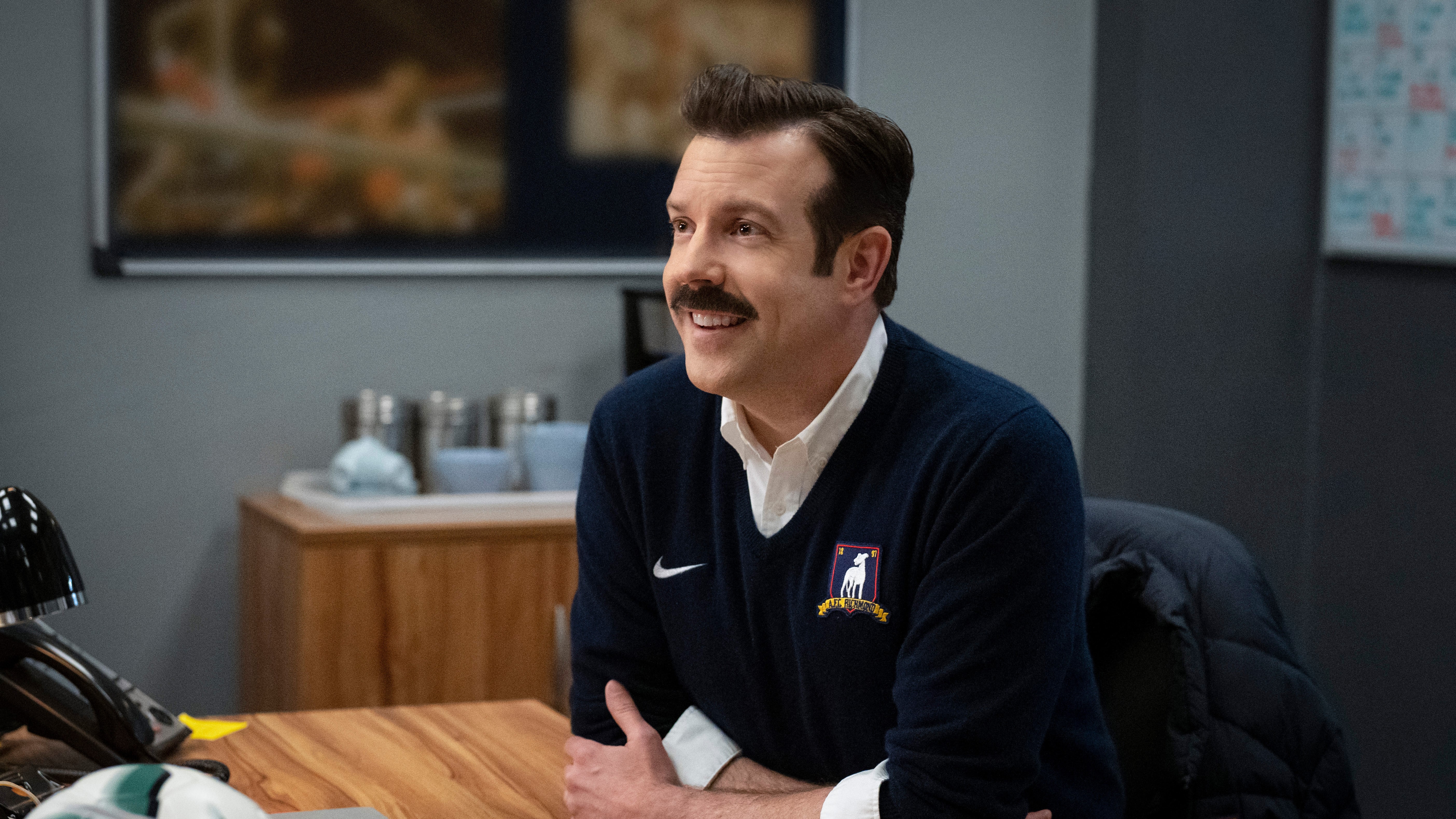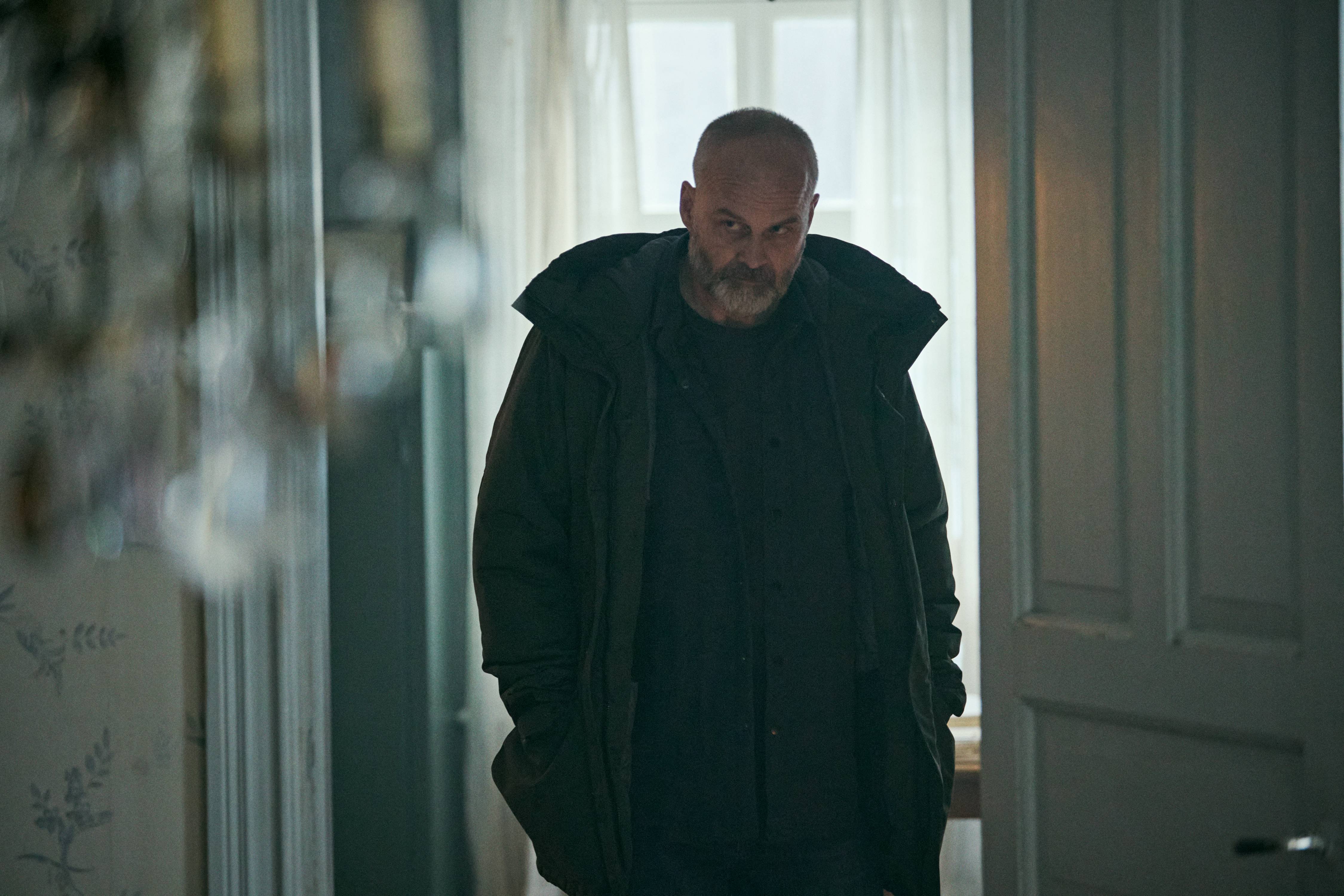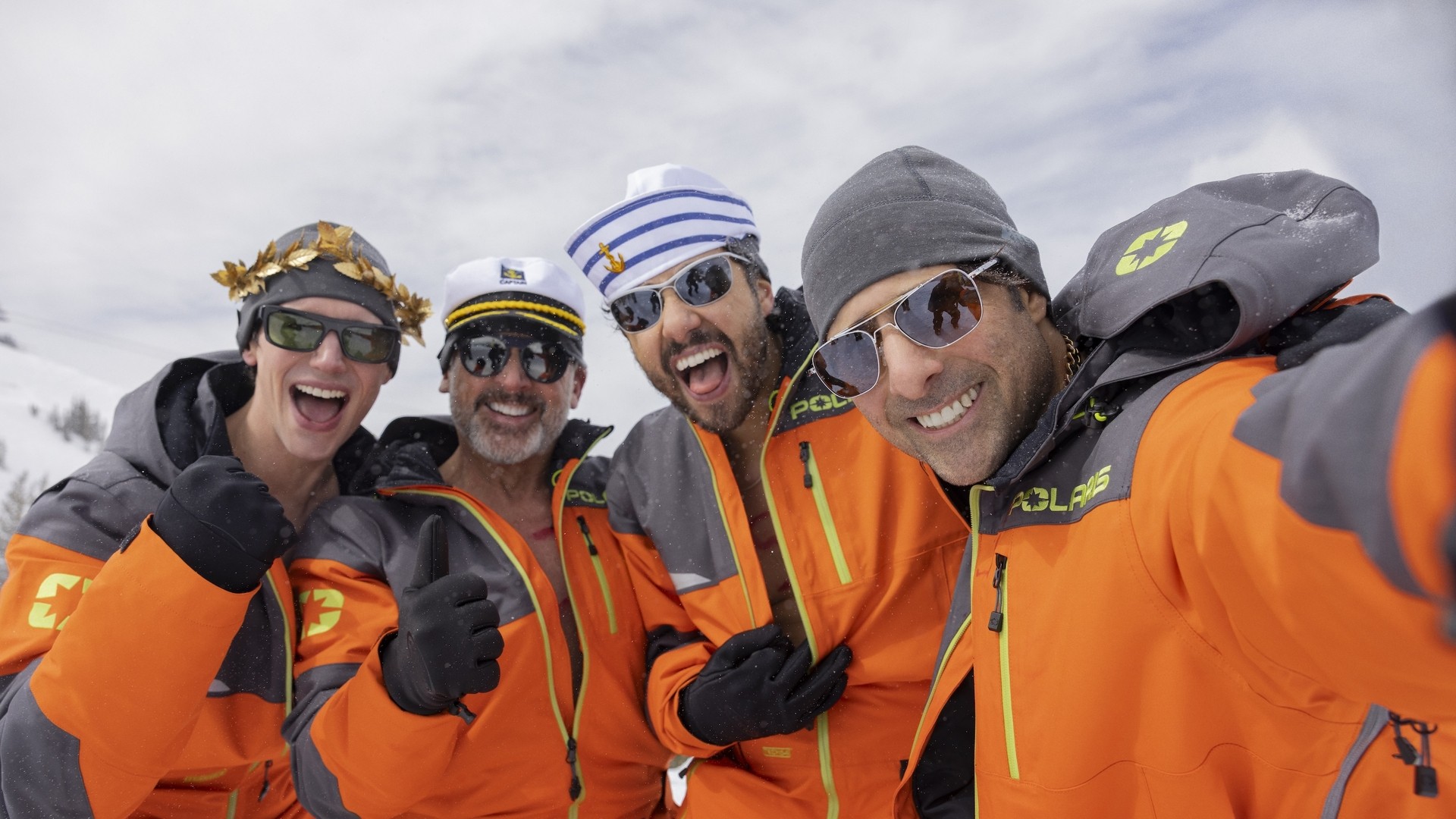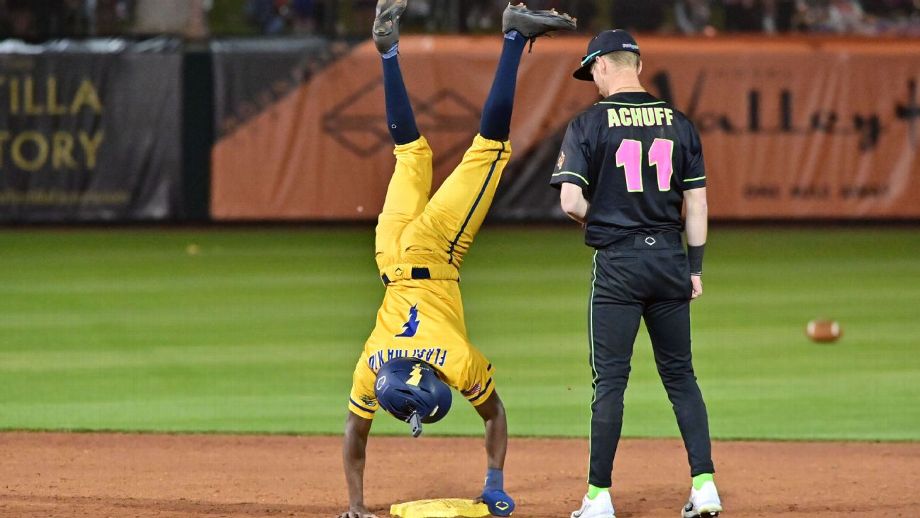'Utopia’ star John Cusack on putting definitions of good and bad guys ‘in a centrifuge’
Actor John Cusack talks about a career spending finding the ambiguity in characters, leading up to his biotech mogul in 'Utopia'.
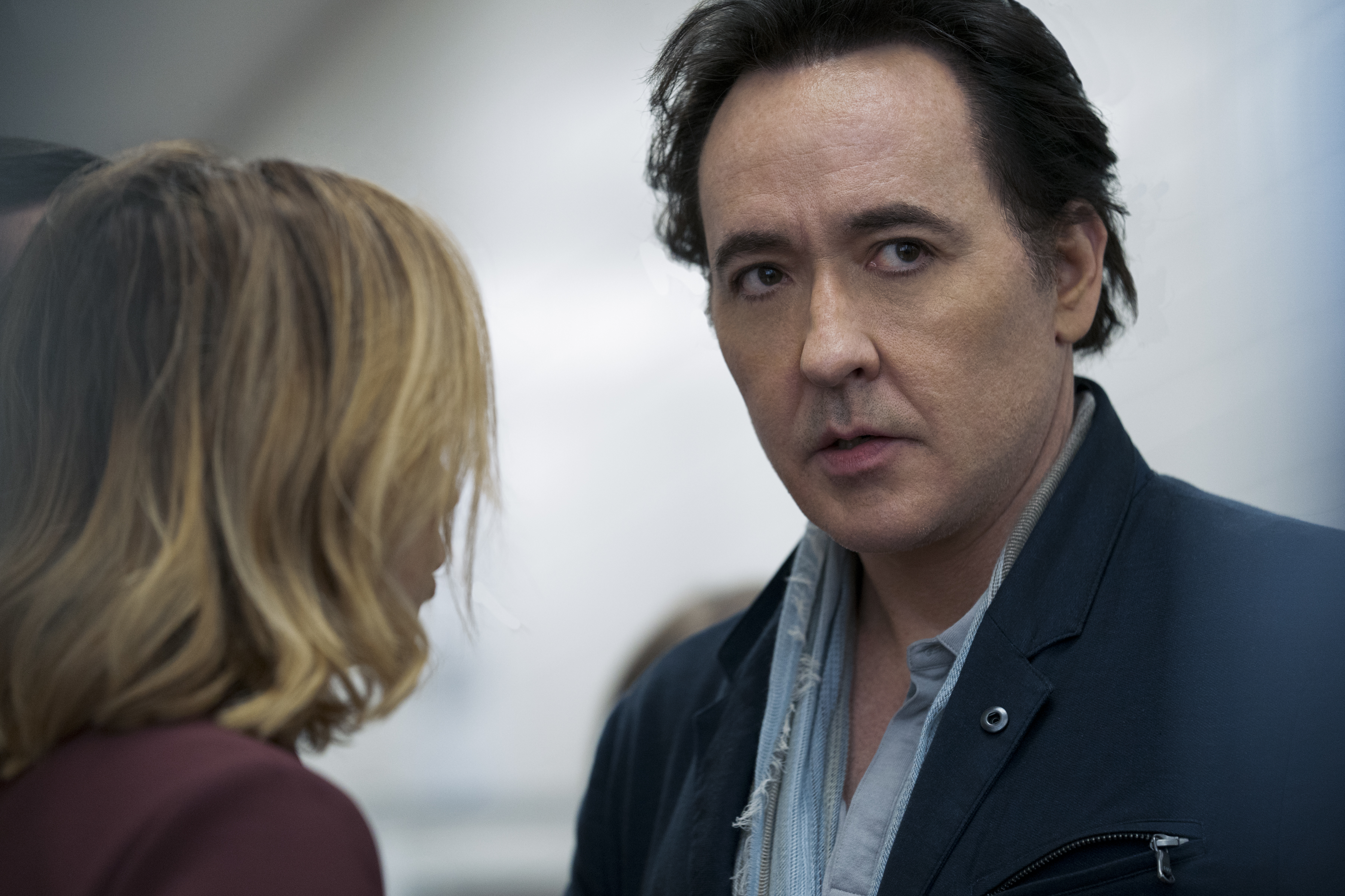
For more than 35 years, John Cusack has been a leading man that we love, but often at the expense of our better judgment. For every film like Say Anything inspiring our unambiguous affection, there are dozens more like The Grifters, Eight Men Out, and even High Fidelity where that love and identification comes with more than a few conditions, or caveats. Cusack’s aptitude for ambiguity has produced so many vivid, unique performances, and just as many where it’s hard to decide if he’s playing a hero or villain.
Amazon’s new series Utopia continues this proud and occasionally frustrating tradition. As Dr. Kevin Christie, Cusack plays a tech and pharmaceutical mogul caught up in the events surrounding a global pandemic. Is Christie helping solve this fictional reality’s problems, or making them worse? In a conversation last week with What To Watch at the upcoming series’ virtual press day, Cusack offered few hints about which label he thinks the character deserves. At the same time, he reflected on the variety of roles he’s played throughout his career, and what led them to their exciting unpredictability - finding those elements in the writing on the page, or injecting them with his own impulses as an actor. And finally, he discussed what it is about a show like Utopia that seems to intrigue audiences, and what ideas inside resonate as its concepts edge ever closer, while also veering wildly away from reality.
Tell us about your character Dr. Kevin Christie. Is he a bad guy? Is he a good guy? What is it about this character that attracted you to Utopia?
John Cusack: Well first of all, it was Gilian Flynn doing a conspiracy thriller. So that alone is exciting enough. And then when I read the scripts, I was constantly shocked and surprised - it felt inevitable, but only in retrospect. So it was really sophisticated, cool writing and a really intense, wild world that she created. And one thing that I think is great about the piece is that if you think you have the characters pegged in the first couple episodes, in the next episode, it's all going to be flipped on its head and up is going to be down and black is going to be white, and that keeps going on. And even when you think you have this thing pegged by the seventh episode, what happens in the eighth episode, you end up going down a different rabbit hole and you're looking at a different Cheshire cat. So it's very hard to pull off that kind of writing, that kind of architecture. And I would say Gillian is kind of a master at that. And Kevin Christie is one of these guys that we know now, a guy who wakes up and he's a biotech visionary. He's got his hands in big pharma, medicine, patents, vaccines, alternative food stuff, he's into green energy. So he's one of these guys that we see a lot of these days. And I think the definition of who's a good guy and who's a bad guy in this piece gets put into a centrifuge. And by the end, you're not quite sure whether you're even capable of understanding who's a good guy and a bad guy. But I saw him that in some ways he was like a biotech, Ted Talk version of Willy Wonka, as fucked up as that sounds. That's how I saw him.
You've played this really extraordinary variety of different kinds of characters. From Say Anything to The Grifters, where sometimes you were very wholesome and other times where you were more villainous. How have you been able to find that variety, and ambiguity in your roles - is that something you have to find on the page, or something you bring to them yourself?
Cusack: I think it's a combination of both, but I think it has to sort of be in the bones of the writing. If you look at a film like The Grifters, it's Jim Thompson and these are all criminals, but it's looking at the psychology of why would a con man feel the need to lie and get over? And it was almost kind of a con man's world, but through Oedipus in some sort of strange way. So your easy judgments about good and bad, right and wrong criminal and straight citizen, purposely the dramatist, the writers or filmmakers, want to get deeper inside that and get past a lot of these easy snap judgments. I think that's a sign of good writing and then you're also attracted to that. So when you're starting out as an actor, if you've done something that people like, they want you to do it again; you might be a leading man and be very likable and all these things, and I was always thinking about how can you subvert that? But that's just an artistic kind of sensibility, probably. And then you have to just try to find material that allows you to do it. But I think there might be a larger point that ambiguity is sort of a lost virtue in movies in some ways, because if you watch some of these great films of the seventies, or even earlier films of the '50s and '60s, like The Third Man, Carol Reed's great film, all the people are tired. They're exhausted. They've been failures. They're trying to make their way through the world, but they all know everything and they have all failed and they're all trying to do their best to keep going. And so there's that kind of feel to it. And I think nowadays people want easier, black-and-white things and the ambiguity has been lost. Like, it was interesting. Somebody [recently] said, "How do you feel about High Fidelity? Now that it's been 20 years, people are thinking maybe he's not such a role model." I'm like, role model? I was saying, is it true? He's an asshole. But is he human? So the ambiguity or the moral contradictions of the character are what's interesting and dramatic. So I don't know if a movie like that would get made by a studio today because people would say, "well, this is this lead isn't sympathetic. Look at all these terrible things he does!" But the terrible things that he does in the movie are things that probably you and I have done. We all know people who have done it, not all of them, but we're all human beings. We're all frail, fucked-up human beings who make lots of mistakes and try to do our best, get it wrong, and get it right. So it is a weird thing. But I love ambiguity in that way, like to get into that space. And it definitely is something you have to like either put into a piece, or when you see it in the writing, recognize it and just jump towards it.
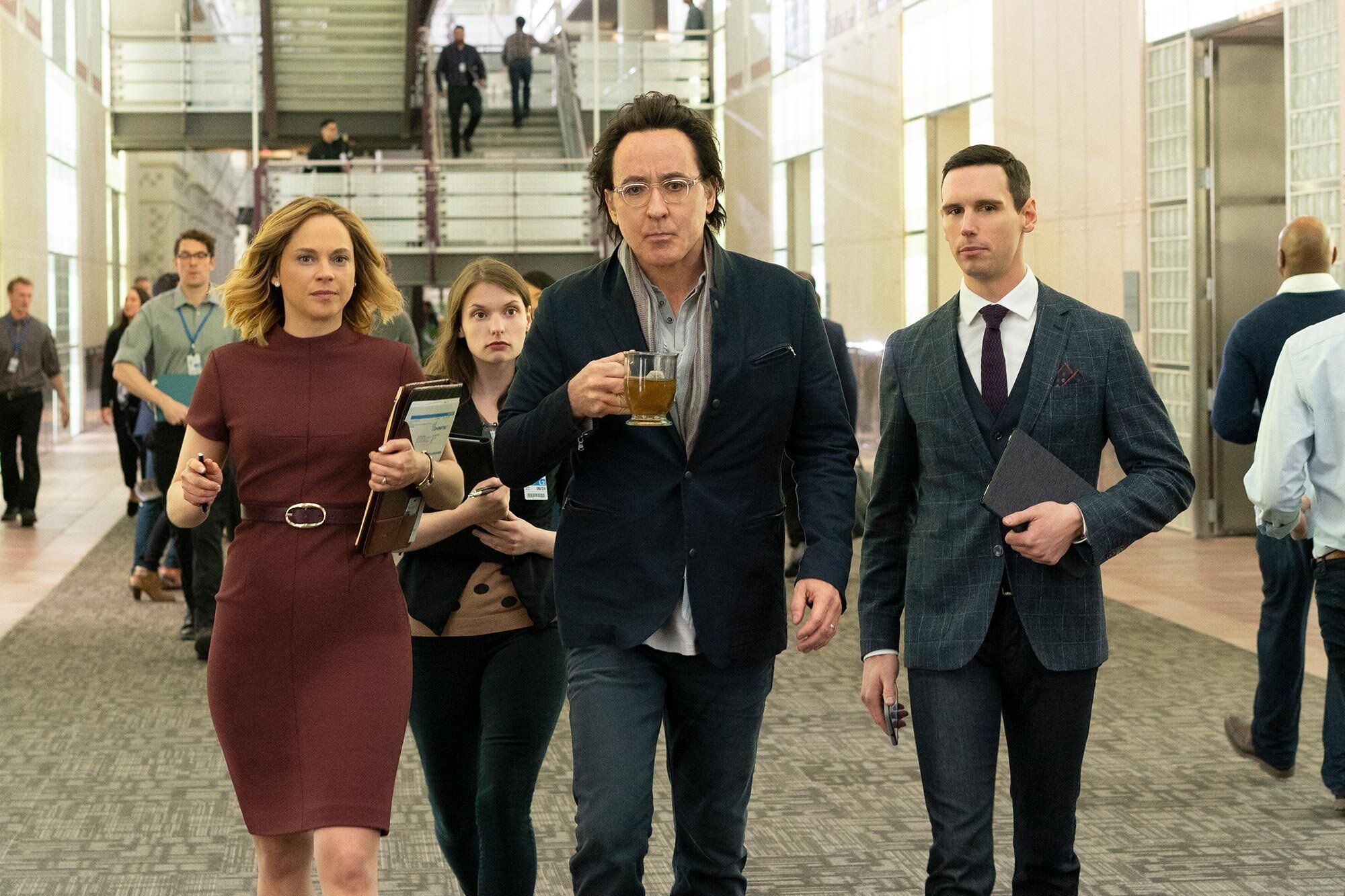
Sure. There were times when I certainly identified altogether too closely with Rob in High Fidelity.
Get the What to Watch Newsletter
The latest updates, reviews and unmissable series to watch and more!
Cusack: People were saying, “he's not [a role model]." I said, he wasn't a role model. It's was just like, is it true? It's like when you hear standup comedy and it could be edgy stuff, but it rings true. It's because it's gotten into a sweet spot [of] what we'd like to be, our self-perception of ourselves and what really happens. And in between those two things is drama and comedy and all that. Nobody wakes up in the morning and says, I'm going to do a really terrible job today and be a real bastard and really fuck up. That's not how people are.
Why do you think we're so fascinated with this kind of fantasy?
Cusack: Well, I haven't seen anything like this, so I don't even know if there's a [precedent], I guess the genre would be the conspiracy thriller. And I think even when I was a kid and you'd see Close Encounters of the Third Kind, and there's Richard Dreyfus and he's driving in a truck, something happens and then he has to figure out what it is. It has a fantastic supernatural element to it, and then he has to get past the government structures and the big business. And you have the story of a little guy who's trying to figure out with the government or the foreign entity, the corporation what's really going on and find out the truth. So I think there's a great tradition of those kinds of conspiracy thrillers. And this one is kind of a meta version of that too, because what we think we know that's in an underground comic book that has kind of Nostradamus-like clues about the future that people have decoded. And then it finds out that the comic book is real and the characters who love the comic book start meeting the people in the comic book and start becoming part of the plot in it. It's a very inventive piece. It's kind of like a conspiracy thriller but also has shades of Kafka and Charlie Kaufman in it in a weird way. I'm not quite sure what the genre is, but that element of the conspiracy thriller and those genres like The Parallax View or The Manchurian Candidate, those classic films where there's more going on than meets the eye. And there are sinister forces at work. And the protagonists are trying to discover what those are and what their relationship is to them. And you're on the edge of your seat to know what happens next. And when the good ones come about, you can never really predict that. And that's when you come into really great writing.
Interested in our other Utopia interviews? Check 'em out here:
Todd Gilchrist is a Los Angeles-based film critic and entertainment journalist with more than 20 years’ experience for dozens of print and online outlets, including Variety, The Hollywood Reporter, Entertainment Weekly and Fangoria. An obsessive soundtrack collector, sneaker aficionado and member of the Los Angeles Film Critics Association, Todd currently lives in Silverlake, California with his amazing wife Julie, two cats Beatrix and Biscuit, and several thousand books, vinyl records and Blu-rays.


